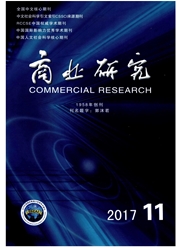

 中文摘要:
中文摘要:
我国资本市场频现的IPO破发现象使投资者情绪与投资策略成为行为金融理论关注的对象。本文选择沪深两市2010-2012年654家A股上市公司为样本,分析上市前后股东户数变化和机构投资者持股比例变化,考察投资者对IPO破发的反应。研究发现,IPO破发中小投资者因代表性偏差、损失厌恶与后悔厌恶而产生过度反应,而机构投资者因信息优势和技术经验优势而过度自信以至于产生过度反应;由于投资者过度反应,退出股东的势力压倒进入股东的势力,造成破发股在市场上面临着在股东户数减少和机构投资者持股比例降低情形下新一轮股东的大洗牌。
 英文摘要:
英文摘要:
Frequent IPO overpricing makes investor sentiment and investment strategy become the focus of behavioral finance theory in China's capital market. This paper selects 654 A-share listed companies from 2010 to 2012 in Shanghai and Shenzhen market as samples,analyzes the proportional change in shareholders number and the shareholding proportion of institutional investors before and after IPO,and examines investors' reaction to IPO overpricing. The study finds that IPO overpricing makes medium and small investors do excessive reaction because of representativeness bias,loss aversion and regret aversion,and institutional investors also overreact due to overconfidence from the advantages of information superiority and technical experience; the investors' overreaction makes withdraw shareholders more than entry shareholders so that the shares with IPO overpricing face a new round of a major reshuffle of shareholders under the condition that their shareholders number and proportion of institutional investors become less.
 同期刊论文项目
同期刊论文项目
 同项目期刊论文
同项目期刊论文
 期刊信息
期刊信息
